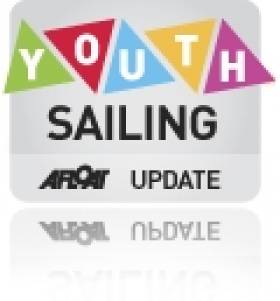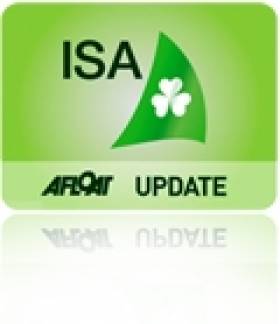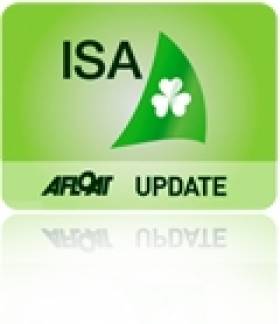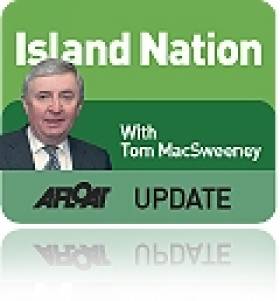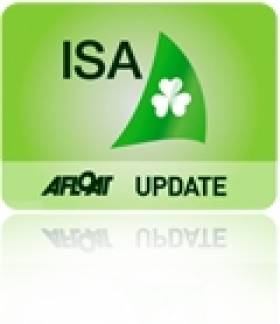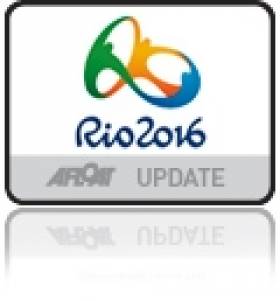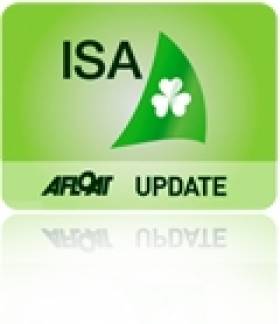Displaying items by tag: Irish Sailing Association
Radials & 420s Start Youth Nationals At Royal Cork
#youthnationals – Today saw the first day of racing at the ISA Pathway Trials and Youth Sailing Championships at the Royal Cork Yacht Club writes Claire Bateman. Today's fleets were Laser Radials and 420s. The Principal Race Officer was Alan Crosbie. The morning turned out to be foggy but there was a light south easterly breeze and the sun made an appearance making it into a pleasant day but still retaining some heat haze.
During the day the wind strengthened slightly and went more into the east with Alan Crosbie weaving his magic by sailing the 420s on the outer loop of a triangular course while the Radials sailed on the inner loop. For the next three days the fleets will be joined by the Toppers and the Laser 4.7s.
Meanwhile, not a mile away on the Curlane Bank, Race Officer Anthony O'Leary was performing his style of magic in enabling the IODAI Optimist Trials also to get in three races. There was no doubt he got the best of the wind from his position as it was somewhat stronger on this course and he got in three fine races for the sixty plus competitors and the races were over forty minutes each for two of them with the third being over fifty minutes.
The IODAI Optimist Trials will run over 4 days from today (Thurs) to Sunday. This is a qualifying event for the Optimist sailors to represent Ireland in 2015 - the top five at Optimist Worlds in Wales, next seven at Optimist Europeans in Poland and a number of sailors chosen for a development team that will sail at the French Nationals.
The 420s and Laser Radials are competing in the ISA Youth Pathway Nationals from today (Thursday,) while the Toppers and Laser 4.7s will compete from tomorrow, Friday to Sunday. Normally this is a qualifying event for the Youth Worlds, which are usually in the summer, but the 2015 Youth Worlds are in Malaysia in December which is a little too far away. Still an important event for all the classes as the Lasers compete for the honour of ISA Youth Pathway Nationals Champion, the 420 sailors are qualifying for the Junior Europeans and Worlds, while the Toppers are qualifying for the ISA Summer squads which will build up their skills for the Topper Worlds in Lake Garda. This is an open event for ALL Topper, 420, Laser 4.7 and Laser Radial sailors, which means the young sailors did not have to qualify to enter and it gives ALL sailors a chance to compete against each other on an even playing field.
All in all an excellent, if somewhat long day for the youth competitors but obviously scintillating and provided for plenty of chatter and camaraderie when coming ashore and bringing their boats back to the allotted compounds for each fleet.
Racing continues tomorrow (Friday).
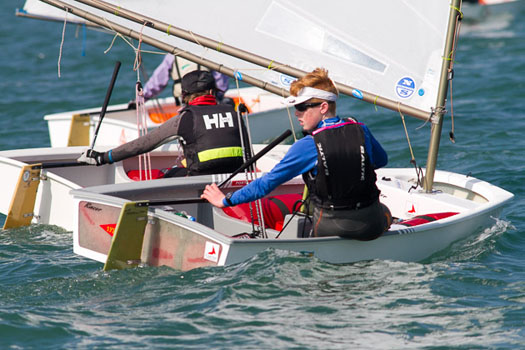
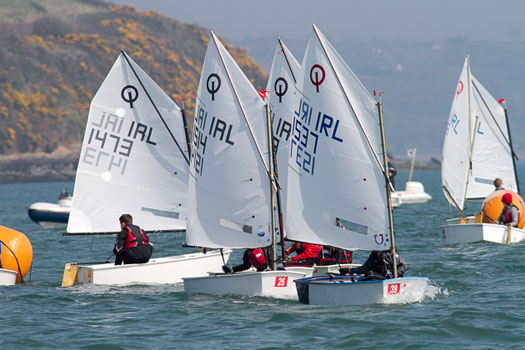
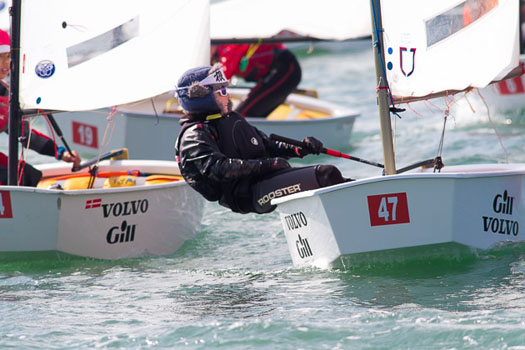
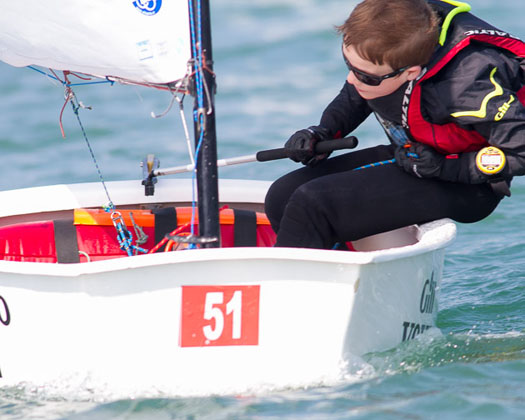
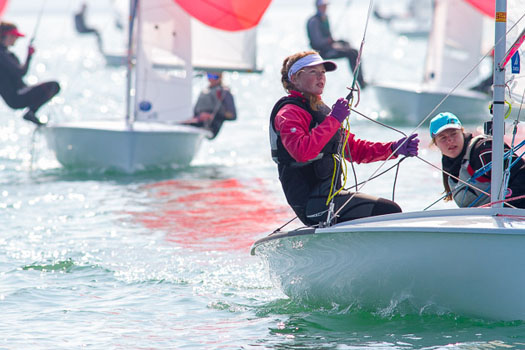
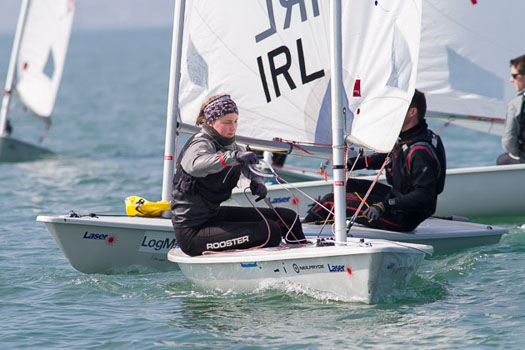
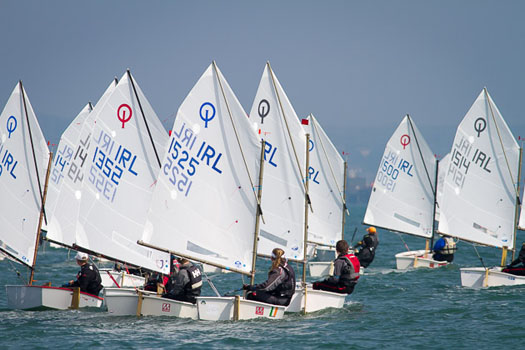
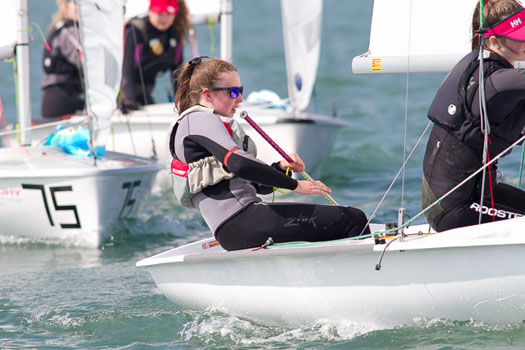
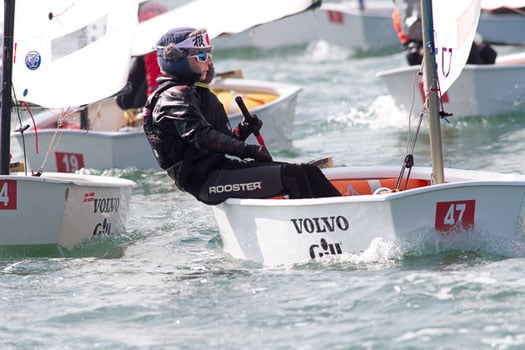
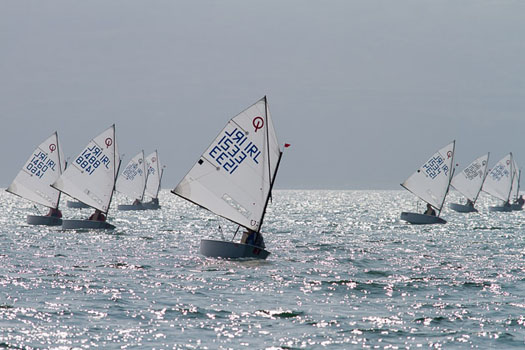
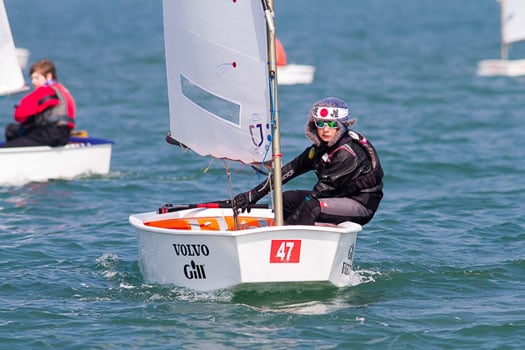
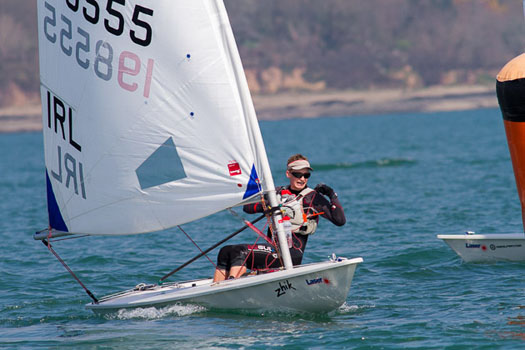
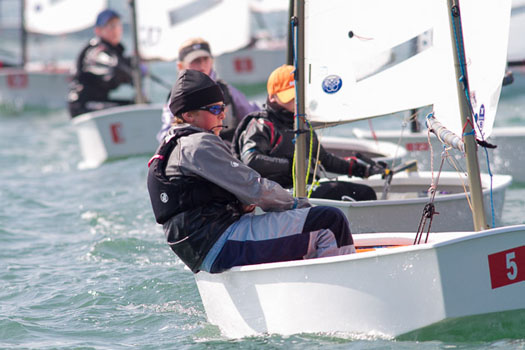
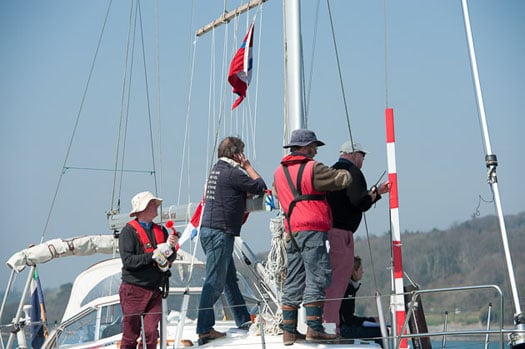
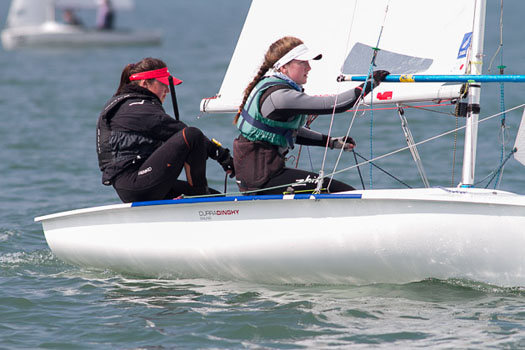
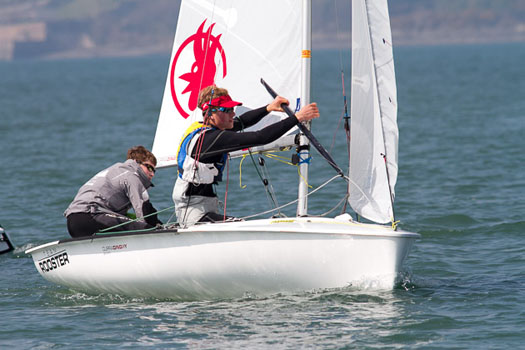
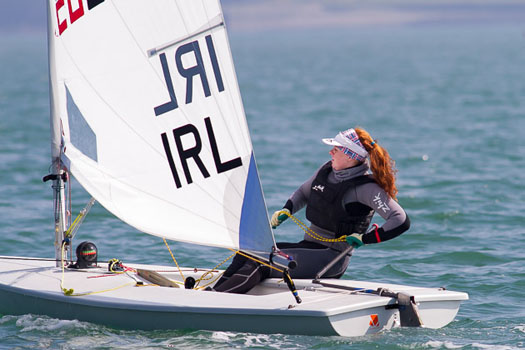
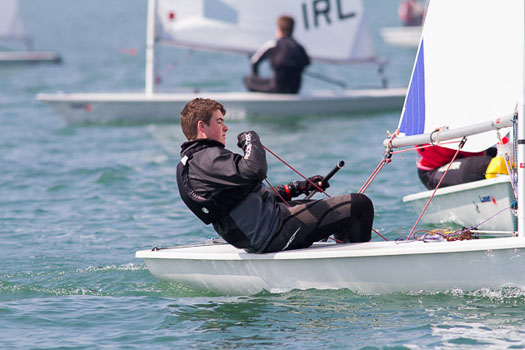
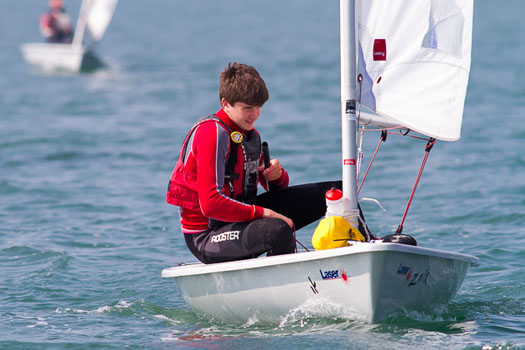
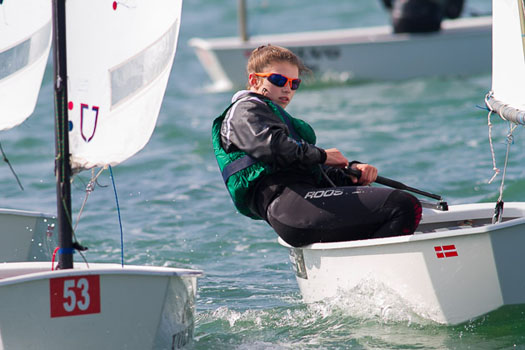
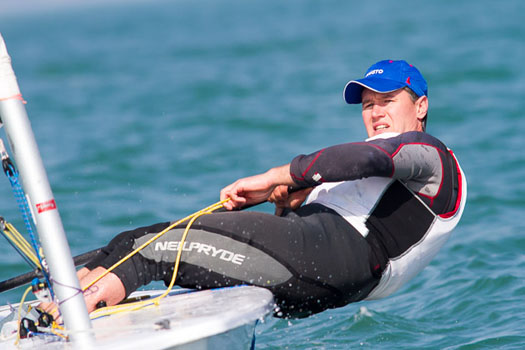
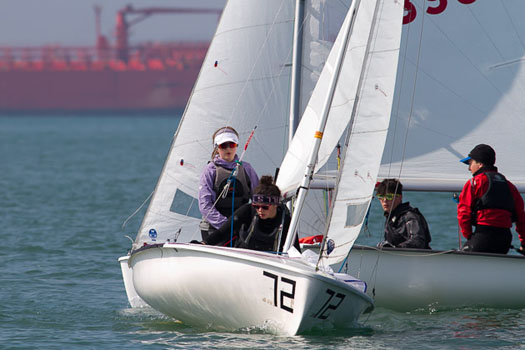
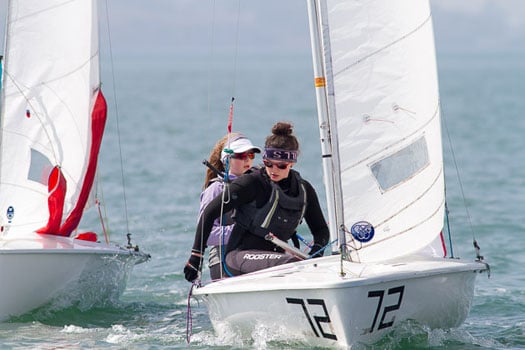
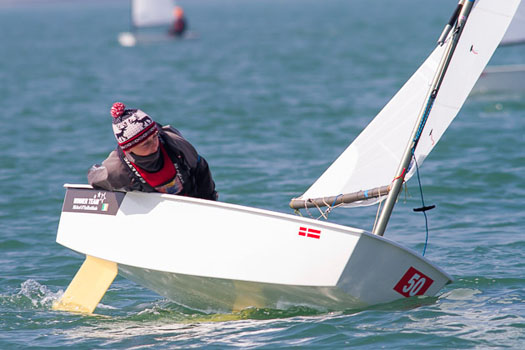
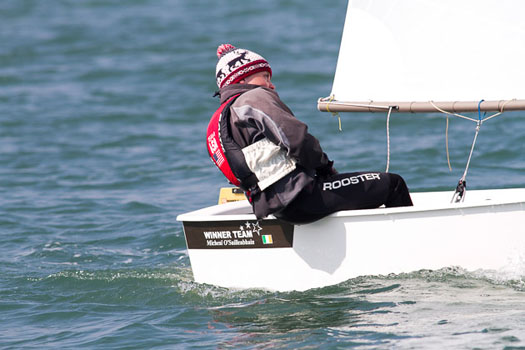
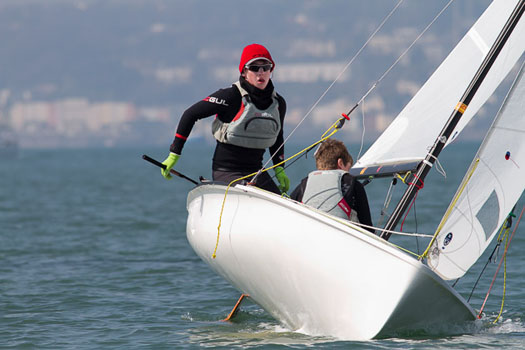
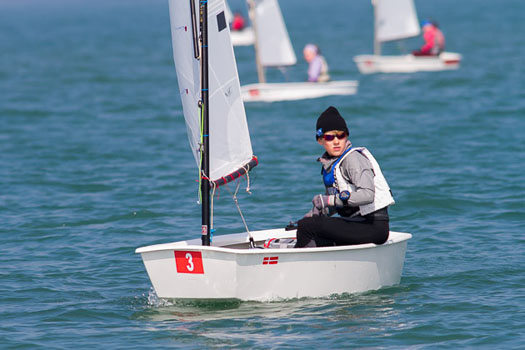
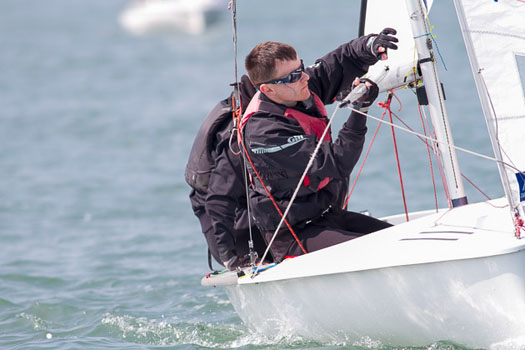
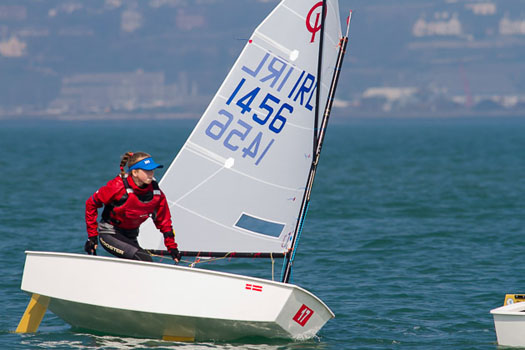
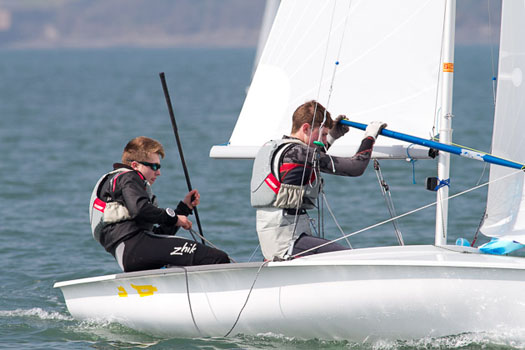
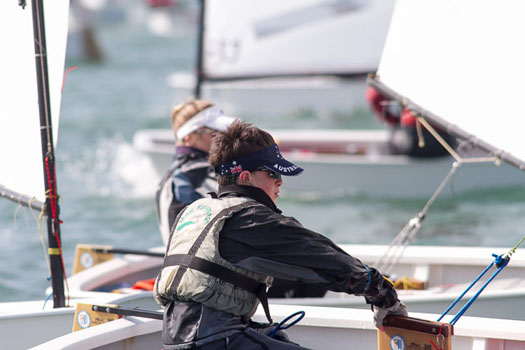
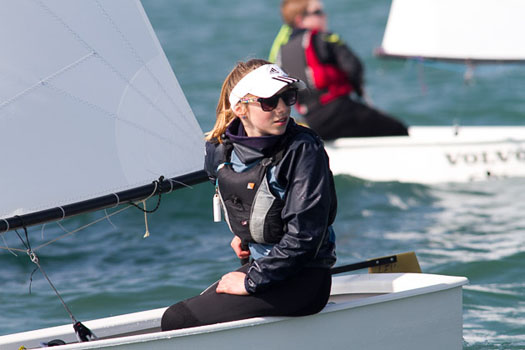
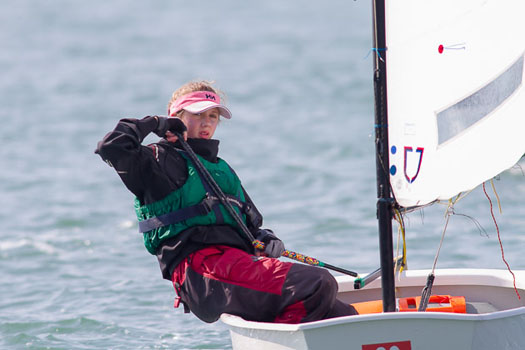
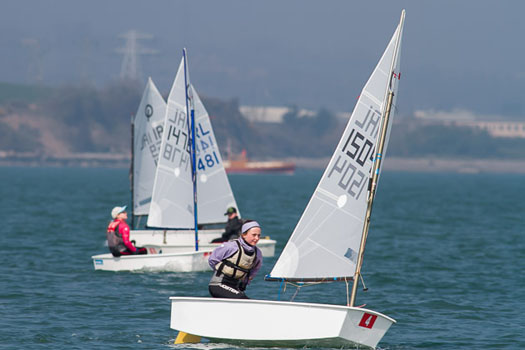
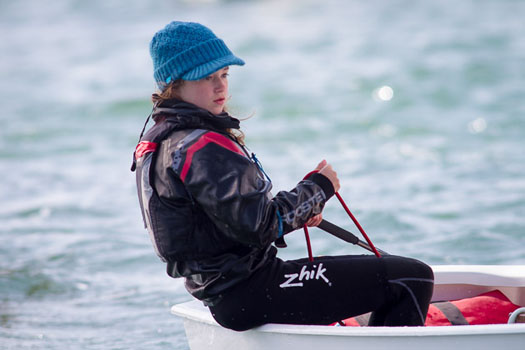
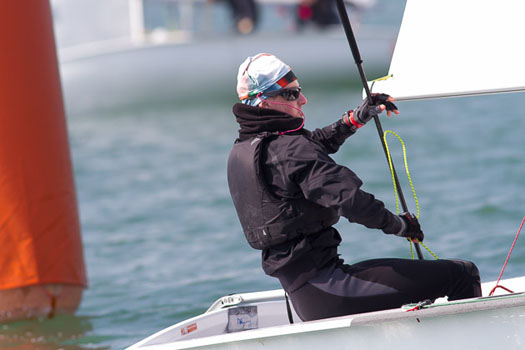
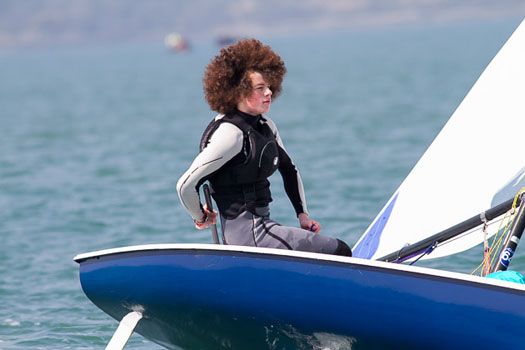
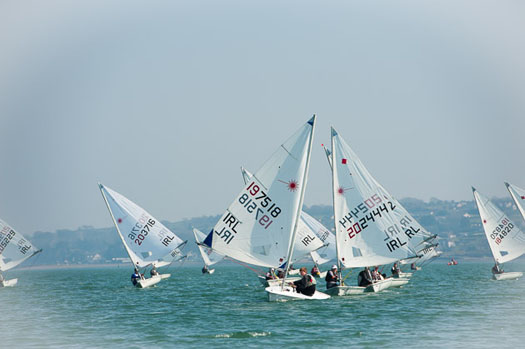
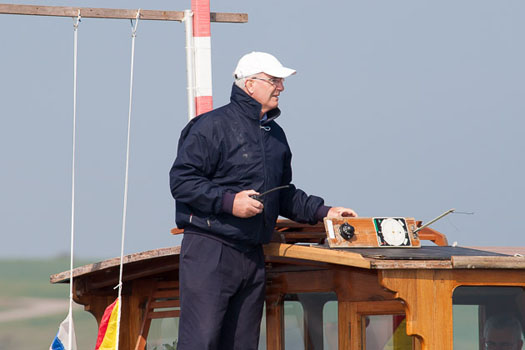
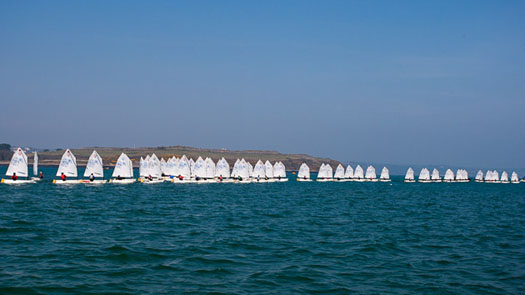
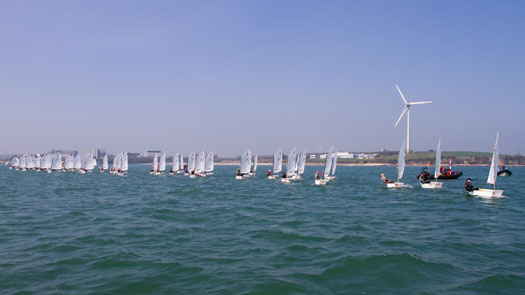
Irish Sailing Association AGM 2015 Is Businesslike Affair
#isaagm – W M Nixon gives us some impressions of today's Annual General Meeting of the Irish Sailing Association.
There have been two years of accelerating soul-searching and increasingly incisive analysis of the problems of the Irish Sailing Association. That process has been followed by this year's thorough two month tour of the country, taking the proposed Strategic Development Plan on the road for further refinement. And that was done by consulting the many sailors who are concerned about the future of their beloved sport.
After all this, there was no way that today's Annual General Meeting to consider approval of the Plan, along with the usual business of an AGM, was going to be anything other than businesslike. And if you can find a more businesslike setting than a windowless meeting room of a certain size in a motorway hotel in the anonymous middle of the country, then this particular sailor doesn't want to know about it.
Yet I'd be delighted to meet again with any of those sailing stalwarts who made it their business to be at this meeting, which both fulfilled the legal requirements of being a truly national authority, and at the same time tried to plan the way ahead. For these people care deeply about their sport, and they have nothing but underlying goodwill for those who are trying to make the ISA more accurately reflect it, and its future needs.
A Saturday evening is no time to be considering the grinding detail of the new plan, for heaven knows they've been raked over in enough detail on the Afloat.ie website in recent months. And in any case, they'll be released officially in due course next week. But for now, a few impressions won't go amiss.
There may not have been a large turnout, but it was perfectly respectable in size, even if there was only one woman sailor, but as she was Cathy McAleavey she was worth a dozen men. And there too were the main men from clubs as diverse as Royal Cork and Blessington and Howth and many others. And key to the whole thing, quietly sitting side-by-side, were Bryan Armstrong of Sligo and Norman Lee of Greystones.
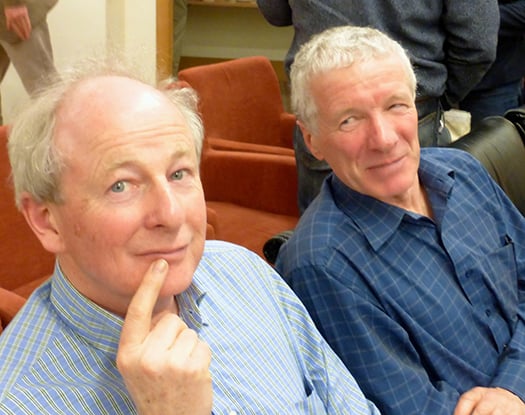
Bryan Armstrong (left) and Norman Lee started the reformation. Photo: W M Nixon
They are the two "ordinary club sailors" who, two years ago, set in motion, despite all sorts of rebuffs, the glacial process of reform which will in the long run do Irish sailing no end of good. For what these two guys – who aren't in the slightest bit ordinary at all – managed to do was to get the powers-that-be to stop and listen, and listen carefully. And in the end, the powers-that-be found this to be an extraordinarily invigorating process, and good for the soul of Irish sailing.
Thus the ISA called on many talents from all round the country, and Presidents from times past such as Neil Murphy and Roger Bannon, to undertake a ferocious self-examination. It was done so thoroughly that in some areas they may have gone too far in planning to throw out what they mistakenly thought to be deadwood. But thanks to the consultation process, some very useful retaining modifications were made which should result in a national sailing and boating authority which truly represents those who go afloat for recreation on sea, lake and river.
So after reasonable consideration, adoption of the plan was successfully proposed by former ISA President John Crebbin of Dun Laoghaire, who is an Irish representative on the International Sailing Federation, and seconded by Alex Blackwell of Mayo SC, who had been one of the most eloquent critics of the plan in its original form.
Being an AGM, points of interest emerged. It was fascinating to have it clarified that the ISA's income is 37% reliant on Sports Council grants. And in this time of cutbacks, it was reassuring to hear from Board Member Colm Barrington that the High Performance Sailing Fund - which is his particular baby within the ISA remit - will be relying on philanthropic private donors, many of them anonymous, and will in no way impinge on established or developing commercial sponsorship for the main body of the sport.
It was also intriguing to hear Neil Murphy, finally at the end of his Herculean task of shaping the Strategic Development Plan 2015-2020, express the hope that with a bit of a fair wind, we might hope to see the number of active sailors in action in Irish waters increase to 25,000 by 2020. My own feeling is that the ISA's current estimate of 17,000 active sailors today verges on the pessimistic side, as it is totally reliant on figures from clubs, and we all know of clubless sailors going happily afloat. But there are others who could be persuaded, if the package is properly designed.
The ISA is taking on extra talent onto the Board, which is eventually going to increase to twelve, and there was a particularly warm welcome for new appointee Paddy McGlade of Cork, who as a former Admiral of the Royal Cork and a highly regarded figure in the cruising community, is just the kind of person needed to broaden the Association's scope. However, there was a much regretted retirement from the Board, that great seaman Philip Cowman of Wexford. But his seven years are up, and rules is rules.
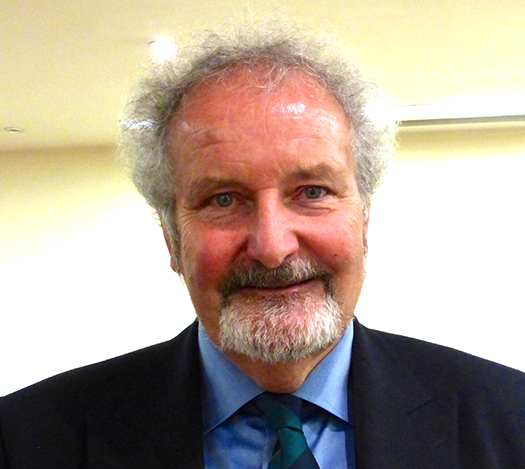
Philip Cowman of Wexford, whose retirement after his statutory seven years on the Board was much regretted. Photo: W M Nixon
Looking to the future, one of the points made from the floor was that in this increasingly regulated world, regular and persistent representations to government departments should be one of the ISA's central activities, and this too has been accepted. Thus one of those who will shortly be co-opted onto the Board is former President Robert Dix, who has unrivalled experience in negotiation and representation at the highest levels.
At a more basic level, concern was expressed about the recurring difficulty of communicating with the sailing community generally, and the meeting – having been determinedly maintained at a properly humdrum level – came to its conclusion on a high, leaping to life with an entertaining and very professional presentation by Noel Davidson of the ISA Communications Sub-Committee on how Irish sailing can cope with today's multiple media. Time was when many of us went sailing to get away from it all, to get clear of the tyranny of the telephone. But fair play to Noel Davidson, he made it all seem fun.
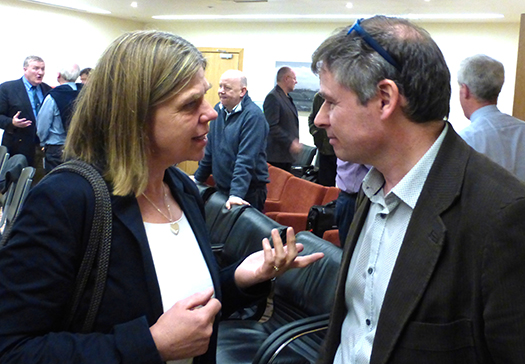
Cathy McAleavey with Noel Davidson, whose presentation about how sailing can deal with modern media brought the AGM to a lively conclusion. Photo: W M Nixon
SPEECH BY DAVID LOVEGROVE, PRESIDENT ISA
AT THE AGM ON SATURDAY 28 MARCH 2015
Good morning ladies and gentlemen and thank you for giving up your Saturday morning to attend the AGM of the ISA.
This past year has been one of incredible change for your Association, but the change is not finished. Your Board has embarked on a process aimed at making the ISA more relevant to our members, weather they be clubs, individual members or training centres. But at the outset, let me say that while we are aiming high, we will not be able to deliver on everyone's expectations of what the ISA should be doing. The Directors and I are constantly getting emails from members complaining that we are not addressing some particular aspect of our activities that they feel to be of critical importance. I take it as a compliment that members are writing to us and giving out about something which they feel we should do differently. It is good to have members who engage, we cannot solve everything, but it is better than no one contacting us because we are considered to be irrelevant.
During the past year there have been a number of staff changes:
As part of the process of redirecting the focus of the Association, it was necessary to make two positions redundant. This led to Tony Wright and Ed Alcock leaving the Association. This was a hard decision and only taken after a lot of consideration. At about the same time Rachel Solon was head-hunted by Wilson Hartnell and Sylvia left to teach English in Vietnam. I would like to acknowledge the terrific service that these staff members gave to the Association over the years and wish them well in the future. Also, I want to thank the staff that was left, namely Carol, Liz, Ana, Gail, Ciaran and Nuala and especially Harry for keeping the ship afloat. Thank you.
While this was a massive upheaval, it did allow us to set about the objective of providing a better service to our members. To this end, we recruited a new RDO, Sarah Louise Rossiter, who will be responsible for the East region. This will allow, Gail and Ciaran to spend more time working in the South and West respectively. Sylvia has been replaced by two part-time staff Sheila and Rachel.
In addition, we are in the process of recruiting a new Communications and PR Manager.
Let me give a quick run-down on the main areas of activity during the past year:
For me, the most significant development has been the production of the new Strategic Plan, which is before you later in the meeting.
To produce the Plan, we put together a small group comprising; Brian Craig, Ruth Ennis, Peter Reddin, Sean Craig, myself and Harry Hermon, under the incredible guidance of our most able Chairman, Neil Murphy, a past President of the Association. Indeed, it is interesting that there will be three past Presidents working in the ISA this year: Neil, as Chairman of the Strategic Planning Group, Roger Bannon, our Treasurer and Robert Dix will be co-opted to fill the remaining Board vacancy.
The Plan before you today is the culmination of many hours work and consultation, aimed at ensuring that the ISA is focused on providing value for our members and growing participation in sailing.
We have been making progress on the Communications side. We are finalising a new web-site and have come to an agreement with Afloat to share information. As mentioned, we will soon have a new Communications and PR Manager on-board. This will then allow us to develop a communications strategy, focused on the Strategic Plan.
A few weeks ago, we held an Awards function. This was a replacement for the black-tie Ball of the past. The winners of the four awards were:
ISA /Afloat Sailor of the Year: Anthony O'Leary. Not many sailors get to win the Commodores Cup twice and then round off the year by winning the All Ireland Helmsman's Championship.
ISA/Mitsubishi Club of the Year: Royal Cork Yacht Club
ISA Youth Sailor of the Year: Finn Lynch, the winner of the U19 Laser World Championship
ISA Training Centre of the Year: Mayo sailing Club
Congratulations to all. To my great disappointment, I was snow-bound in Washington and was unable to get back for the event.
The High Performance side of the house continues to produce incredible results. Like the Rugby, we constantly punch above our weight.
- We already have three boats qualified for Rio: the Laser, Laser Radial and the 49er.
- ISAF World Cup Silver Medal, a major break through result for 49er sailors Ryan Seaton and Matt McGovern
- Gold Fleet at Worlds for 49er fx sailors Andrea Brewster and Saskia Tidey who as a result break into the senior team.
- Under 19 World Laser Champion - Finn Lynch
- ISAF Silver Medal - Seafra Guilfoyle
Sincere congratulations to James O'Callaghan and Rory Fitzpatrick for incredible results.
None of this would be possible without the continuing support of the Irish Sports Council, who continue to provide substantial funding for the HP side and of course Providence Resources.
In addition, the OSG, in consultation with the Irish Sports Council, has been identifying additional sources of funding. This is leading to the establishment of the Irish Sailing Foundation, based on philanthropy, a model used by other sporting bodies and charities.
This Foundation will seek philanthropic donations aimed at furthering competitive sailing, including the pathway and donors will have the option of specifying where they want their money spent.
There are three considerations as far as the ISA is concerned:
1) The Foundation will not be in competition with commercial sponsors of sailing events. These donations are very different to sponsorship funding. Sponsorship is basically a commercial transaction in which the company providing the funding is looking for some form of commercial return. With the Foundation, the donors, many of whom will remain anonymous, do not want a commercial return and are purely making a donation out of the goodness of their heart to further sailing in Ireland. The two are not in conflict
2) There is no financial risk to the ISA. The first two years funding for the Foundation are already secured through grants from the Irish Sports Council, who are fully supportive of the initiative and a philanthropic donor.
3) While the Foundation will be a separate legal entity there will be a number of common Directors to ensure cooperation
And finally, the Board of the ISA fully endorses this initiative.
On the financial side, the financial reporting and budgetary systems were redesigned and enhanced financial governance procedures were implemented. The run cost profile of the organisation was significantly reduced and resources were reallocated to areas of activity which were regarded as having more relevance to members.
Plans for 2015 include a major investment in developing new and more efficient IT systems which are better suited to providing the appropriate infrastructure which will support the professional staff in delivering efficient and cost effective services to all our members.
The Training Policy Group is selected to achieve a representative mix of the different aspects and skills of those involved in ISA Training – clubs, commercial centres, instructor trainers, junior organisers, coaches and national trainers. Nine group meetings were held with the focus on addressing the key training issues raised in the SRG Report.
Those addressed were in five main areas:
· Potential for partnering the ISA Schemes with RYA
· Need to improve the delivery of Training schemes to Clubs by ISA
· Moving the emphasis from acquiring certificates to developing skills and the use of logbooks
· Establish a panel of Instructor Trainers that provides leadership in standards and consistency in the delivery of training to instructors.
· Raise the importance of having active double handed sailing at junior and youth levels in member clubs.
Progress has been made on each of these areas:
· A scheme by scheme comparison of the RYA and ISA schemes was undertaken and meetings held with senior members in RYA to explore opportunities for partnership. The potential to work together was seen by both parties to be in the Cruiser (Sail and Power) area and this being followed through by a working party at present.
· Discussions with clubs and Junior organisers highlighted the need for the ISA to provide specific guidance to clubs on how best deliver ISA training in the club environment. It is hoped the recently launched on-line Training Guide for Clubs will result in the clubs deriving additional benefits from running our training programmes.
· It is planned to pilot the Sailing Passport project with a mix of clubs and centres in 2015 with a view to introducing it throughout the ISA network in 2016. The potential benefits are to:
· bring more focus on skills,
· provide a logbook in electronic form,
· help integrate trainees into clubs and
· capture key data not currently available to centres or the ISA.
This project is being developed in conjunction with a Canadian software company supplying similar software to the Canadian Sailing Association servicing 20,000 sailors.
· The Instructor Trainer panel was brought together for two weekend conferences over the past six months to introduce new structures and formalise their relationship with the Association. A new mandatory Instructor Trainers Contact has been put in place and three volunteer National Trainers appointed. The TPG will be bedding down the full implementation of these contracts during 2015.
· The TPG are also looking at how best to provide guidance to members and clubs on the range of boats available and how to get more double handed sailing at junior and youth level to help the retention sailors not suited to the single handed route.
The attention for the coming months is to bring the current matters to a conclusion and then focus on others aspects of the Strategic Plan.
2014 saw the renewal of a Memorandum of Understanding between the ISA and the Cruiser Racing Association - ICRA. This new agreement makes for a closer cooperation between the two organisations with ICRA representation on the Competitions Policy Group and the ISA Director of Racing joining the ICRA Committee. Training, specifically for crewing on cruiser racers, had been identified as an urgent necessity. Funding has been agreed for a new training scheme initiative to be developed specifically for this purpose. The first stages of this scheme will be in operation early in the 2015 season.
Previously it was not possible for Training Centres to race in other clubs' events unless the helm was a member of a Category 1 club. The prescriptions of the ISA have now been amended in order that training centres can now have official access to the Racing Rules of Sailing in order that they may run, and their boats/clients may compete in other clubs' events, without becoming a Category 1 establishment, or member. It is important we promote greater progression from training centres into clubs and this initiative is seen as a help in this objective.
The rules where coaches have to be used in this scheme has been changed so that classes may now avail of a grant to help fund a non ISA coach who has specific knowledge of that class.
The Classes Policy Group identified there was a great lack of understanding as to what classes were active, and in which clubs. To address this situation we are undertaking a survey of all clubs. To date approximately 40 clubs have responded. We are hopeful of more returns in the coming weeks. The process has already started of accumulating and processing this data which will give us a more accurate insight into the strengths and weakness of racing at club level in Ireland. With this fundamental information we will be far better served to help both clubs and classes in terms of promoting inter-club racing and assisting classes with information on clubs who are open to running events. It is already evident that many classes, with some notable exceptions, are struggling to maintain fleet numbers. We have already identified and are promoting the concept that classes should combine with others to make viable numbers for clubs to host events that work for the classes and clubs alike. The RS class is a perfect example where Feva, RS200 and RS400 now combine with 50/60 boats being the norm at their events. Other successful combined events in 2014 included Flying Fifteens & Fireballs and J109 & Ruffians to name a few.
The strength of the single handed classes, Optimist, Topper and all Laser rigs continue to dominate dinghy racing. We are very anxious to support, especially among younger sailors, the increased participation in twin handed dinghies. The survey will give us a good insight into where we can best support and encourage this objective.
Intervarsity racing continues to be very active and is extremely well organised by IUSA, however we still have an, as yet, unresolved issue with how we keep sailors involved in our sport post third level. The new initiatives from ICRA and a renewed promotion of senior twin handed classes are some steps that may help this cause.
Denis Kiely has come back on board as our National handicap coordinator and we are particularly fortunate to have his expertise in this area. Work is in hand to promote all cruiser racing clubs to use software that can easily accommodate the collation of ECHO handicaps on a national basis.
The Race Officials Policy Group continues to promote participation in the various Race Official seminars, Levels 1 and 2 for race officers and the Race Team course for anyone involved in running an event both on and off the water. The Umpire and Jury Officials have also been holding talks in their areas of expertise. ICRA have organised an IRC Measurement course in collaboration with the RORC which is taking place today. A total of 8 courses have been run over the last 12 months with a total participation in excess of 150 volunteers through the different disciplines. We continue to look at new ways of promoting and educating Race Officials and are pleased to announce a new collaboration with the RYA on the role out, later this year, of new Race Management courses.
I would like to state clearly that the ISA is in full support of ISAF in reinstating Paralympic sailing in 2020. The ISA and Paralympic Ireland just took delivery of our new fleet of 2.4m boats showing our commitment and support to International competition and we continue to develop and extend the Sailability programme throughout our clubs.
The ISA Board has had considerable engagement with cruising members during the past year.
Work is ongoing in developing cruising contacts around the coast as well as inland with cruising and dinghy cruising interests. Together with the Cruising Association links are being built which will provide numbers over the next few years to support more coastal cruising.
Most clubs have provided little for their cruising members and the term Rear Commodore Cruising nowadays tends to mean "Rear Commodore Cruiser Racing" with little provided for the local cruising member who joined the club in the first place because they thought they needed a club.
The ISA is now encouraging clubs to appoint a committee member for cruising interests. This will ultimately encourage more day sailing, weekend cruising, and promote safety exercises, training and more family participation.
Irish Cruising Association members have met on a number of occasions and will continue to represent sailors' interests. Boat Registration under new legislation is a big concern for many which requires a sensible interpretation by the Government to encourage Irish registration.
Likewise, diesel availability for the cruising sailor has been raised with representations made to Revenue . The ISA also made submissions to the Maritime Safety Directive during the year.
On the Access and Participation side, we are running a new initiative this year called Try Sailing, which is a grass roots initiative to encourage the Irish public to give sailing a try, through a campaign of Try Sailing sessions available in ISA clubs and centres throughout Ireland.
Try Sailing sessions and opportunities can come in many forms and will vary from location to location, event to event. Here are a few examples -
A dedicated Try Sailing week coinciding with Irish Water Safety's "National Water Safety Week" which runs form Monday 15th to Sunday 21st June 2015
As part of the Try Sailing launch and to gain media exposure, on the 21st June 2015 we launch the inaugural Try Sailing Challenge - calling upon Ireland to get the largest number of sailors on the water on the longest day of the year - creating a goal for subsequent years.
Making Try Sailing sessions available at high profile events throughout the year. Spectators at an international event such as Volvo Dun Laoghaire Regatta or Volvo Cork Week would also have the opportunity to get out on the water for a fun session.
Dedicated Open Days for Try Sailing at clubs and centres on dates of their choosing, to coincide with their own regional events.
ISA Clubs and Centres scheduling regular 'Pay n Play' Try Sailing sessions, making sailing accessible as a regular sport or hobby to non boat owners.
As part of the National Water Safety Awareness Week, water sports clubs and schools all over the country will open their doors for people of all ages and abilities to try snorkelling, kayaking, canoeing, surfing, windsurfing, power boating and of course Try Sailing.
National Schools throughout Ireland will be sent Irish Water Safety information packs to help spread the message of safety on the water.
We are encouraging all ISA clubs and centres to get on board for this great initiative by opening their doors and providing an opportunity for their local community to try sailing. Your local RDO will be calling on you!
The J80 Sailfleet continues to provide and excellent return to sailing and was an excellent initiative, when introduced a few years ago.
In 2014 the J80's were based predominantly in Howth Yacht Club following a request for proposals concluded through the ISA. HYC won the request for proposals and a contract was signed from April 1 2014 to March 31 2015. The use of the fleet extended across club racing, junior keelboat training and corporate events. The fleet also acted as a means of introducing newcomers to sailing.
The fleet was also used for the Women's World Match racing Championship, held in Royal Cork Yacht Club in May-June 2014 and the All Ireland Championship in Howth later in the year.
Looking to the future:
· Expressions of interest for 2015 & 2016 were requested in February of this year for the period beginning following the HYC contract
· The HYC contact was extended to cover the ISAF Nation's Cup European Final, scheduled for HYC in May 7-10 2015 (currently there are 20+ teams entered from 15 countries
· The fleet is booked for the All Ireland Championship scheduled for National Yacht Club, in September 2015
It is also hoped to use the fleet to:
· Assist Clubs with tendering for International competitions where the Sailfleet J80's can be utilized
· Continue to promote keelboat sailing through the use of the fleet
· Support initiatives to develop keelboat sailing and retain younger sailors in the sport
I am also delighted to report that there were no instances of sailors contravening the anti-doping rules in 2014, and that our sport continues to remain drug free.
In conclusion, I would like to thank the ISA staff and all those who have given their time during the past year in assisting the Board in developing its policies and to thank two Board members who are stepping-down today, namely Mike O'Connor and Philip Cowman, both of whom have served for seven years on the Board.
#sailingplan– Changes have been made to the Irish Sailing Association (ISA) Strategic Plan 2015 – 2020 that is to be proposed for adoption at the 2015 AGM in a fortnight. The revision includes the edits made to the original draft to reflect the input from the briefing meetings in Dublin, Cork and Galway. The latest version (downloadable below as PDF file) also takes onboard some of the observations contained in Afloat's original review of the document in January.
The main changes are:
• The inclusion of an additional pillar titled 'Representation'. This has been done to reflect the importance of this function for ISA members, who look to the Association to make sure that their concerns and aspirations for Sailing are effectively conveyed to decision makers of all types, whether they be at central or local government level, involved in regulation or in a position to support Sailing and increase the level of participation in Ireland.
• The use of the term 'Sailing' in place of 'sport' or 'sport of sailing' in all strategies except those specifically to do with competition. It was pointed out by a number of people that 'sport' implies competition and only covers a limited section of the range of activities that make up 'Sailing'. The remit of the ISA extends to all of the activities that 'Sailing' encompasses and that term has been adopted as being more appropriate.
Apart from the changes flowing from the addition of the 'Representation' pillar, various minor edits have been made throughout the document to correct errors in the consultation draft and state the strategies more clearly. However, none fundamentally changes the direction previously outlined for the Association between now and 2020, as set out in The Way Forward document, and the thrust of the new focus for the Association in providing a better and more relevant service to our clubs and members.
The minor changes include a redesign of the 'Overview' pages (04 and 05) to more clearly express the content, the inclusion of specific reference in the 'High Performance' pillar to Paralympic involvement (previously included in the global 'Olympic' term) and an expansion of the strategies listed for the 'Efficient Management' and 'Communication and Sponsorship' areas.
Transforming Ireland into a Pre-eminent European Sailing Nation
#irishsailing – After tweeting 'neither Afloat nor the Irish Sailing Association understand the makeup of sailors in Ireland', author Alex Blackwell gives his personal view on this week's ISA Public Meeting in Galway and on the way ahead for Irish sailing.
Sixty people from as far afield as Dun Laoghaire, from sixteen different sailing clubs, and four training centres converged on Galway Bay Sailing Club on Tuesday February 24th for the final Regional Meeting to discuss the ISA Strategic Plan 2015-2020. Chaired by GBSC's Pierce Purcell (ISA Director) and presented by Neil Murphy (ex ISA President and Chairman of the Planning Group which was operational in the final three months of 2014), the first hour was taken up with a detailed explanation of the Draft Plan, with interjections by Neil Murphy of things that have already been decided should be changed. As he put it, there were many good suggestions made at the previous two meetings, as well as in individual submissions. For the attendees, many of whom had come bearing copious notes, this often meant a reduction of what might need to be brought up.
As Neil Murphy explained, the original list of tasks had taken up over forty pages. This had been whittled down to the document at hand. Some things had been cut that should not have been. One such item was Paralympic Sailing, which as we all know has been cut by the International Paralympic Committee. This has now been reinstated in the ISA plan. It can only be hoped that the ISA will indeed take the IPC and the ISAF Disabled Sailing Committee to task on this.
The plan itself, when finalised before the end of March and voted on in the ISA Annual General Meeting on 28/03/15 in Port Laoise, will constitute the working doctrine for the ISA and its staff right through to 2020. Though 'written in stone' after the AGM, changes may of course be decided on in upcoming AGMs or EGMs.
Neil Murphy made a point of explaining that henceforth any discussion would be about "sailing" as opposed to "the sport of sailing", an issue brought up previously that the Committee felt strongly about. The understanding was that by using the term 'sport', a significant segment of the sailing and boating community was potentially excluded. It was also felt that using this term might be felt by some as elitist and infer that sailing is all about racing. Presumably since this turn of phrase is so deeply ingrained in most sailors, he then went on to almost exclusively refer to 'the sport' or 'the sport of sailing'. But there is hope.
He also brought up that, based on previous input, the ISA had started an initiative with regards to diesel fuel availability. The EU has dictated that leisure craft may only use unmarked (taxed) white diesel. However this is simply not and will not be available with the exception of mere handful of harbours, mostly in clusters around Dublin and Cork, or inland service stations which are inaccessible to visiting boats. Another issue was that the junior sailing programmes would be restructured, with greater emphasis placed on two person boats, and less on the current boat classes.
At the end of his presentation he received a warm round of applause. Almost every subsequent commentator remarked on the excellent work the committee had done in producing this document.
The ensuing discussion, during which some impassioned contributions were made, was not without some serious criticism; similar one might add to what actually happened in Cork. The first point raised was the Small Craft Register, where the ISA had suddenly folded to Government pressure without first ensuring that a working replacement was in place. This is an entirely untenable situation. Irish yachts abroad, and those wishing to go abroad are being forced to flag out to Britain, otherwise they face impoundment, either scenario being undesirable.
Another concern raised was that the stakeholders, key to the growth of sailing, had been omitted in creating a document entirely focussed on clubs, access, training, competition (racing), and culminating in the Olympics. These are the actual members and their concerns, the general public, from whom the clubs (and the ISA) draw their members, and last, but by no means least, the Government. It was pointed out that the RYA's primary focus in their manifesto is "...to ensure that legislators, regulators, and other authorities understand, and take account of, recreational boating activity." It had already been brought up in Cork that the ISA needs to be constantly in the forefront as an advocacy body in respect to sailor's freedoms and interests, and this was reiterated in Galway.
A representation was also made by another significant stakeholder group: the Sailing Businesses. Over-regulated and under-supported, these provide the goods and services all sailors and boaters need; not to mention the innovations required to advance design and technology – a 'minor detail' essential to Ireland being in the forefront of High Performance (Olympic and international class) sailing. This also includes high profile events, such as the Volvo Ocean Race, which came to Galway twice in recent years, producing two of the biggest 'sporting' events in Irish history.
A point that was raised at previous meetings and was brought up again was that the draft plan was all about racing, culminating in 'High Performance'. It was argued that racing sailors were in the minority and that this emphasis was inappropriate. According to statistics issued by the RYA (the ISA has published none) the ratio is 6-1 Club Cruisers to Club Racers. Ireland is likely similar to the UK in this regard. Another observation was that in any given club for every boat going out on the race course between five and ten remained at their mooring or in their slip. Mr. Murphy countered this contending that 60% of sailors in Ireland are racers.
A quick informal survey revealed once again that statistics can always be portrayed in a way that underpins a particular argument. Whereas most cruising boat owners who participate in club racing would consider themselves cruisers, and some racing boat owners would indeed do the same, their respective crew members (up to ten per boat), who only race and rarely have an opportunity to cruise, would almost all consider themselves racing sailors.
Perhaps we can agree that the 'Corinthian' approach would be appropriate: to promote 'sailing' and not harp on racing (as in the draft document) or cruising. We are one community with one goal. We all love sailing and wish to help promote it; be it racing around the cans, coastal cruising, adventure sailing, or simply messing about in boats. This is what needs to be reflected in the plan.
Women sailing also made for some interesting discussion between the floor and the head table. The question was raised why there were only two or three women in a room full of men. The ISA had in the past done some initiatives to get more women sailing. However, as they were implemented, these had been so far from the mark that they had in fact put women off. On the day, the women had to take the helm in a regatta without any prior experience. The 'plan' should, it was subsequently suggested, encourage comprehensive women's sailing programmes. This brought many comments about what good skippers women who actively sail do make.
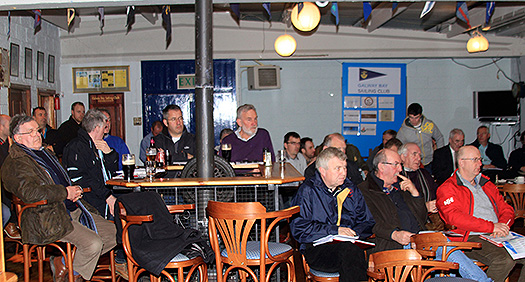
The attendance at the meeting in Galway Bay Sailing Club included representatives from sixteen clubs in the west and four training centres
Class associations were also represented, and the Mirror was highlighted. Ireland's own Olympian Annalise Murphy 'honed her skills' in a Mirror Dinghy. There are countless Mirrors in sheds and garages nationwide. With the dinghy sailing focus changing to a two person boat, perhaps the clubs could bring these back out into use.
It was also pointed out that more outbound communication (PR) should be done about the high profile events taking place in Ireland, and also the fantastic people we have in the racing, cruising, and adventure sailing scenes. All of these would do a huge job in elevating the public perception of sailing in general and thus also help to promote our ambitions with high profile events like the Olympics.
The bombshell for the majority of those present, not being ISA insiders, arrived when the question of voting rights at the Annual General meeting was raised. Votes are cast en bloc by each club based on their membership (and subscription) levels. The 'Big Six' clubs on the east and south coasts, therefore carry roughly half of the votes, irrespective of who actually attends the meeting.
It is almost impossible for an individual or a small club to have any say. Intentionally or inadvertently, the "block vote" system has the effect of suppressing dissent and perpetuating the status quo. A block vote system like this was used by the trades unions to control the British Labour Party until it was abolished in 1994 in favour of one member, one vote.
Small wonder then, that the smaller clubs, which are the majority of the clubs in the rest of the country, continue to feel under supported and under represented by the ISA. As the main mission of ISA must be to serve its members and to grow interest and participation in sailing in all its forms, the strategic plan must be broadened to encompass all the representative points of view.
Alex Blackwell is an author and sailor who lives on the shores of Clew Bay in County Mayo where he bases his Bowman 57 Aleria.
Difficult Waters for Irish Sailing, Just 17,000 Registered Leisure Sailors in Ireland
#irishsailing – There are just 17,000 registered leisure sailors in Ireland at present. There has been a decline in sailing, the level of activity has weakened, clubs are losing membership and several marinas have space available for the first time.
The only official participation figure available is for those 17,000 members of clubs registered with the Irish Sailing Association. There are many more sailors who own boats and use them outside of the club structures, so the actual participation levels could be two or three times that number. But there is no doubt about the decline in activity in the sport. The effects of the economic recession, people having less disposable income, loss of jobs, emigration, have all had their effects.
Brian Craig, one of the Directors of the ISA discusses the challenges facing the sport in a frank and direct interview on the current edition of THIS ISLAND NATION, the niche maritime radio programme, which you can hear here. The interview ranges across the still-present perception of the sport as 'elitist' and the methods needed to change this and to increase involvement in the sport.
"There is still a strong core foundation to the sport," Brian Craig says in the interview which discusses the Strategic Plan the Association has drawn up and which has been considered at meetings of ISA members around the country.
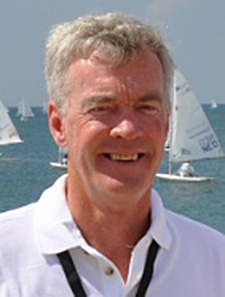
Brian Craig
The plan will be put before the ISA annual general meeting in Portlaoise on March 28 for adoption.
GOVERNMENT THINKS THERE IS AN IRISH LANDBRIDGE!
"We are a funny country. We are surrounded by water. We have a Government that thinks there is a landbridge somewhere, but they don't know where it is."
That was the comment of former seafarer Tom O'Mahony when he spoke to the programme at the annual Remembrance Ceremony for those lost at sea in the town of Youghal on the East Cork coastline. It is a coastal town with a great schooner tradition and memories of seafarers who ranged from the River Blackwater onto the world's oceans in various types of vessels. It is also where the programme is compiled, edited, recorded and transmitted every Monday fortnight at 6.30 p.m. and later each fortnight on Near FM in Dublin, Dundalk FM, Dublin South FM and Raidio Corca Baiscinn in County Clare as well as on this website.
Tom O'Mahony said there was a lack of maritime awareness at Government level and recalled the closure of Irish Shipping and the manner in which ships and crews were stranded overseas and men later left without pensions. "And that was company in which seafarers had gone to sea in ships that would not now pass maritime safety requirements."
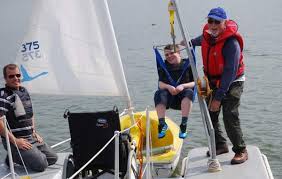
DISABLED SAILING
The RNLI describes a very courageous disabled sailor on the programme in contrast to the decision of the Paralympics Committee to discard sailing from its programme.
NO PLACE FOR BEING POSH OR A FIGUREHEAD
Also discussed on THIS ISLAND NATION is the use of nautical descriptions in everyday language, such as 'posh,' being a 'figurehead' and 'flogging a dead horse."
Former Sailing President Calls For Sport to 'Regrow in a Balanced Way'
#sailing – A leading Cork sailing official who praises the reform of the Irish Sailing Association (ISA) has raised concerns over a new initiative to raise €2.7m for Irish Olympic and ISA pathway sailing. The comments follow a reader piece yesterday: Is Being an Olympic Sport Good for Irish Sailing?
Barry Rose, a former ISA President, says it is 'incredible' during a period of consultation by the ISA that the sailing community was not asked about the set–up of a 'new quango' called the 'Irish Sailing Foundation'. In a sport that is attempting to navigate its way out of recession, Rose warns If resources are 'sucked out of a limited pot' it will effect the ability of Clubs. The challenge, he says, is to 'regrow in a balanced way'.
Firstly I want to state that I fully support the high calibre current Olympic sailing campaigns that I believe have real chances to produce sailing medals that will lift our sport at the next Rio Olympics. Annalise's fantastic performance at the last Olympics richly deserved a medal and lifted all our enthusiasm for the sport. Watching the medal race in Newenhams in Schull was like watching a Six Nations final. It was great.
The current reform and re–connect with the grassroots of sailing taking place in ISA is admirable and needs to happen. Well done to the team driving this through. It seems incredible to me that in the middle of this process without consultation with the wider sport and seemingly out of the blue an advertisement would appear for a CEO of what appears to be a new quango called ISF (apparently under the auspices of the ISA) whose brief is to raise €2.7m a year from a tight economy for elite and Olympic sailing in addition to funds currently generated.
Where has this come from? If this amount of resources is sucked out of a limited pot will it effect the ability of the grassroots to raise funds for Clubs and the events that form the backbone of the sport on the ground in the form of sponsorship and funding vital support structures to grow the wider sport.
We live in interesting times for our sport. There are green shoots everywhere. Enthusiastic sailors and volunteers on the ground are driving the sport in positive directions. Classes like the National 18s are re inventing themselves with a new boat and double figures ordered in its first year, the well organised RS classes are attracting great sailors back in to dinghy sailing in two man dinghies and are having a blast in cool competitive boats at reasonable cost for all age groups. The dynamic of each Class sailing together Fevas, 200s and 400s has really worked with a fun friendly inter reaction at events. Clubs are developing fleets of 1720s and dinghies to offer opportunities to get on the water without owning a boat and grow the sport.
On the Cruiser Racing front ICRA are promoting the sector enthusiastically despite the economic environment and initiating crew training programmes (with ISA support) and growing ever stronger National Championships. Strong Irish teams have won two Commodore's Cups since 2010 exposing many young and some not so young Irish sailors to the highest level of Competition in this field in what is effectively the World Championship of IRC racing. This has happened with incredible commitment by dedicated owners, sailors and a voluntary support team effort by ICRA who are endeavouring to raise some funding support for these types of Irish International challenges.These teams have brought huge credit to Irish sailing displaying a clinical winning approach to every detail on and off the water in significant International events.
We need at this time to plot a careful course for all our sport to regrow in a balanced way that supports the great enthusiasm and innovation that is driving bringing the fun back in to sailing from the ground up in all aspects of the sport.
The Glass is definitely half full not half empty, let's not knock it over! That's the challenge!
Well done for raising the question! It's healthy to debate and reflect!
Cork Sailors Hear About New ISA Plan For Irish Sailing
#irishsailing – The Irish Sailing Association SRG (Strategic Review Committee) penultimate meeting of the series took place last evening at the Rochestown Park Hotel, Cork and drew an excellent attendance with a large number of representatives from southern clubs and sailing establishments in attendance and sailing instructors were also well represented. Claire Bateman reports.
The meeting was chaired by former RCYC Admiral David O'Brien, Dublin SRG representatives who travelled were Brian Craig and former ISA Presidents Neil Murphy and Roger Bannon, and Harry Hermon of the ISA.
A full copy of the ISA Strategic plan until 2020 can be found here.
The meeting commenced at 7pm with an introduction by David O'Brien followed by Neil Murphy who took the meeting through the Strategic Plan line by line. The attendance had been requested to hold questions until the presentation was complete and this request was duly complied with. The Q & A session began at approximately 8.50pm with the meeting scheduled to finish at 9pm. People had a lot of points to make and the meeting finally concluded at approximately 9.45pm.
It could have been a meeting from some twenty years ago and this was no bad thing. Some very old chestnuts were still being aired along with some new topics and indeed some views being expressed from the top table were still unchanged from former years. As one would expect from the wonderful cruising areas in the south west, cruising got a good airing from several quarters with changes being requested in recognition of the importance of this branch of sailing. Also, the importance of motor boating was raised with the rise in numbers of such craft now being seen and, indeed as pointed out by Vice Admiral John Roche of RCYC, there are now some thirty to forty such boats on the RCYC marina and other speakers pointed out this is reflected in clubs all around the country.
A thorny area drew huge response from the meeting and this was the situation regarding RYA courses. Currently RYA instructors are giving courses in this country and these instructors will in be working here and it was pointed out these courses are fully recognised outside Ireland while the ISA Instructor courses have no such recognition. The question of frequent compulsory revalidation also proved to be a hot topic and one that the Instructors have requested to be looked at. The lack of availability of qualified instructors also came up for discussion. The ISA Pathway also came up for discussion and is another area to be looked at.
The ISA's view on the question of promoting two person boats over single handed dinghies, desirable and all as the idea may be to some people, came into sharp focus in a week where a sell out mid term sail training week for Optimists in Baltimore SC is being attended by 150 Optimist sailors and their families from all corners of Ireland. Indeed, your scribe, residing near the main route to West Cork, could describe the numbers of vehicles travelling west complete with packed roof boxes and trailers piled high with all the gear while the car interiors showed parents, youngsters and in a lot of cases family mutts, all heading to a week of hard training for the enthusiasts and a fun week for the younger family members and hopefully for the parents and indeed for the village of Baltimore. By all accounts this is exactly what is taking place.
There was a view put forward from the top table that an Optimist sailor coming out of the ranks when it was time to move on would have no knowledge of sailing coming out of a "little box of a boat". Here I have to disagree strongly. Now, I am no great Optimist fan but I have watched these sailors and their knowledge of sailing can be quite fantastic and their experience of different sails in knowing what is needed for different weights and conditions is absolutely tremendous. They go to sea in conditions that leave the rest of the fleets high and dry and enjoy themselves experiencing conditions the experienced hardy annuals would baulk at. Pay a visit to the Royal Cork Yacht Club during any school holidays and you will find the Oppie Skippers sailing anything and everything they can get their hands on. They will go out in Topaz, 420's, Fevas, International 14's, Toppers, you name it and they will be found.
They also join the club racing/cruising fleets as crew and can be found doing on board crew tasks on the these boats and will also helm. Where did Sir Ben Ainslie commence his sailing career? In an Optimist of course. Last word on this, on one occasion when the ISA were really pushing two person boats, one in particular, the parents responded by deciding to buy Laser 2's in large numbers against the recommendation of the ISA. A world championship for these boats was held in Crosshaven with large numbers in attendance. Where are they now?
The appreciation for the hard work of the SRG Committee was expressed by all and the members thanked for coming to Cork. The last meeting of the series will be held in Galway and the final item on the SRG agenda for the moment will be to try to ensure the adoption of the SRG Plan. If sailors have strong views to express they should make the effort to be present at the Maldron Hotel, Portlaoise at 11.30am on March 28th. If you are not there you cannot complain afterwards if an item was passed you did not agree with without at least having the chance to express your opinion.
A good humoured meeting at the Rochestown Park Hotel in Cork and devoid of any real controversy.
Just Who Do The Irish Sailing Association Think They Are?
#irishsailing – Ireland's national sailing authority has been going through turbulent times in recent years. With unprecedented expansion of ISA staff numbers as the country revelled in the boom years of the Celtic Tiger, the arrival of the inevitable and abrupt financial downturn found an Association bloated, unfit to cope, and out of touch with ordinary sailors.
High profile events, top level training and international participation had become so dominant in the ISA's range of activities that many of the ordinary sailors of Ireland already felt the Association was no longer relevant to their own low key personal pursuit of friendly sport afloat.
When the crash came, it led to a marked decrease in active sailing numbers as disposable incomes fell away. People focused on keeping their jobs and businesses afloat rather than their boats sailing, while many promising young sailors were forced to emigrate.
This new reality was reflected by the growing disillusion of club officers, who saw their membership subscriptions decreasing even while the ISA – which is largely reliant on subvention from the clubs for its own income – seemed always to be looking for more money. And at the height of the boom years, when all the major clubs had put through significant expenditure in developing their facilities to international standards, the ISA had shown its lack of contact with the reality of club life by proposing its own stand-alone National Sailing Centre in Galway, a facility which would in effect have been run in rivalry to the main clubs. To the mutterings in the grass roots were added the rumblings from above as major clubs threatened to withhold their annual payment to the ISA unless real reform was initiated. W M Nixon takes up the story.
In a classic grass roots revolution, club sailors Norman Lee from Greystones in County Wicklow and Bryan Armstrong from Sligo were at first rebuffed when they tried to voice their concerns about the ISA's increasing irrelevance to the needs of the vast majority of sailing enthusiasts, people at local level who were doing their very best to keep the sport alive through torrid times.
The Irish sailing community now owes these two men and their supporters a debt of gratitude, for they believed in what they were saying and they refused to be turned aside. Eventually, in November 2013 moves were in place to establish a Review Group for the urgent analysis of all ISA activities, and its personnel drew comprehensively on Ireland's remarkable pool of people with hands-on experience of running successful sailing events and organisations.
It was chaired by Brian Craig of Dun Laoghaire who has headed up the organising team on more major and notably successful international sailing events in Dublin Bay than probably anyone else, and its able personnel included two former ISA Presidents - Roger Bannon of Dun Laoghaire and Neil Murphy of Malahide and Howth - who had both been noted for their skill in running a tight ship when they were in charge. With them was highly regarded International Race Officer Jack Roy of Dun Laoghaire, and renowned sailmaker/activist Des McWilliam of Crosshaven, who each year is inevitably seen in busy involvement afloat in more Irish sailing centres - large and small - than anyone else in the boat world.
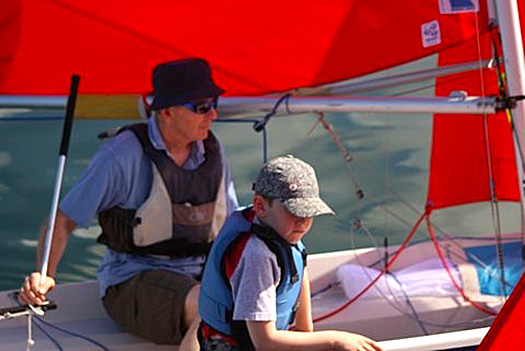
Bryan Amstrong of Sligo on the helm for a Mirror race
Also on board was one of the men from the barricades, Bryan Armstrong of Sligo. His background in a relatively remotely-located club which nevertheless has a long and distinguished sailing history made him uniquely qualified to voice the concerns of the grass roots. And we have to remember that all these people were giving voluntarily and generously of their time to this project in a period when Irish life was largely a matter of just getting through each day, while staying economically afloat was something of an achievement.
Primarily, the Review Group's function was to analyse the Association work on behalf of ordinary club sailors, as it was agreed that the Olympic and High Performance Divisions of the ISA's activities – which receive direct Sports Council grants – were in effect functioning as a different entity.
The Strategic Review Group was still work in progress when the ISA acquired a new President in David Lovegrove in March 2014, but by August the SRG published proposals which led to the setting up of a more formal body, the Planning Group. If this seems like a case of kicking the can down the road, it was anything but - these were people in a hurry, they'd got through the first stage of analysing areas where action was required, now they had to be more structured in coming up with clearcut ideas and concrete proposals.
This new Planning Group, which went into action in early Autumn 2014, was chaired by Neil Murphy, and its members included ISA President David Lovegrove, ISA Board Member Brian Craig, Ruth Ennis, Peter Redden, Sean Craig, and ISA CEO Harry Hermon, with noted Dun Laoghaire events administrator Ciara Dowling to provide administrative support.
They had their draft plan ready by mid-December 2014, and on January 21st 2015 Neil Murphy and his group publicly unveiled their analysis and proposals for the first time at a well-attended and very representative meeting in the Royal St George YC in Dun Laoghaire.
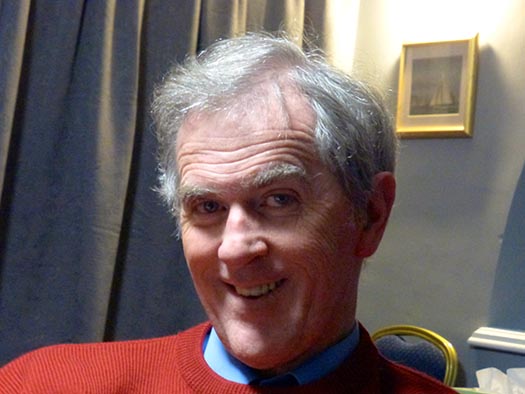 Neil Murphy is a former ISA President who, in addition to extensive experience as a Race Officer, is a typical club sailor, racing a Puppeteer 22 out of Howth. Photo: W M Nixon
Neil Murphy is a former ISA President who, in addition to extensive experience as a Race Officer, is a typical club sailor, racing a Puppeteer 22 out of Howth. Photo: W M Nixon
While those involved in setting the ISA on a healthier course are mostly working on a voluntary basis, it has to be said that the PowerPoint presentation and the printed material was of the highest professional class. In fact, it was much better than many professional shows I've been to, and the level of thought which went into a wide range of questions from the floor answered by Neil Murphy, Brian Craig and David Lovegrove generated a growing level of goodwill which concluded with Norman Lee voicing his congratulations and good wishes for this continuing process in which he and Bryan Armstrong had played such a key role.
So now we move on to the next stage – taking the ideas to the rest of the country. Doubtless you'll have noted the double meaning in titling this piece 'Just Who Do The ISA Think They Are?' In a first interpretation, that question is the one for which, let's hope, we are all now involved in working together in providing and implementing a satisfactory answer.
But equally, as the ISA Road Show gets out of Dublin to take this excellent presentation to a public meeting in Cork next week (it's in the Rochestown Park Hotel on Tuesday, Feb 17th, 7.0 pm to 9.0 pm) and then Galway the week after (Galway Bay Sailing Club, Tuesday 24th February 7.0 pm to 9.0pm), they'll be taking themselves into areas where experience of sailing administration long pre-dates the establishment of organised sailing on Dublin Bay.
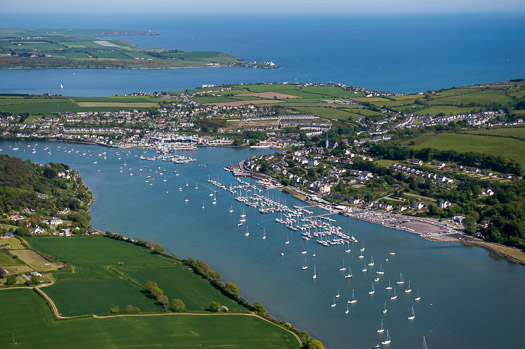 Crosshaven in the summer time. When we look at the natural advantages to be found here, it's little wonder that structured recreational sailing on Cork Harbour long-pre-dated any organised sport on Dublin Bay. Photo: Robert Bateman
Crosshaven in the summer time. When we look at the natural advantages to be found here, it's little wonder that structured recreational sailing on Cork Harbour long-pre-dated any organised sport on Dublin Bay. Photo: Robert Bateman
So you might well ask just just who do they think they are, these people from Dublin, going down to Cork to try to tell them how sailing should be organised? The nerve of them, doing it in a place where they've had organised sailing since 1720, and where the two biggest clubs – the Royal Cork and Kinsale – are both mighty establishments of international sailing repute which would remain so even were the ISA to disappear overnight in a puff of smoke...
And as for going west along the road to Galway, that will take them through Athlone where the Lough Ree Yacht Club dates back to 1770, while on the west coast the Royal Western of Ireland YC at Kilrush traces its origins back to 1828. Equally, further north along the Atlantic coast Sligo YC dates back to 1821, and in Lough Erne the club began in 1820. Yet the first club on Dublin Bay, the Royal Irish, only began as recently as 1831, and even then it barely hung in and had to be revived in 1846, with the pace being set in the meantime by the Royal St George YC, founded 1838.
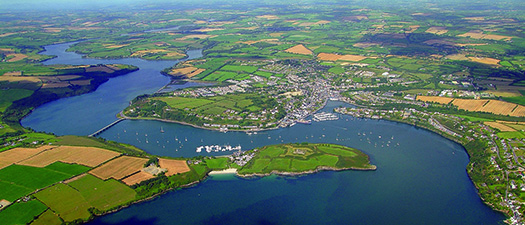
Kinsale is another harbour which seems to have been designed with sailing primarily in mind. Photo: Kevin Dwyer/courtesy ICC
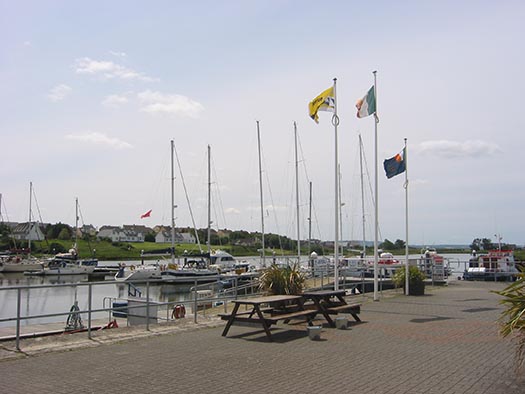
Kilrush on the Shannon Estuary had a club in being before there were any sailing institutions on Dublin Bay. Photo: W M Nixon
So in terms of sailing administration history, Dublin and Dun Laoghaire are only Johnny-come-lately places by comparison with just about everywhere else in Ireland. Yet thanks to the inevitable dominance of economic development, population growth and the strengthening centres of political power, we now find that sailing administration and decisions of national import are emanating from a place that, in terms of natural sailing advantages, lags far behind the rest of the country.
Oh for sure, Dun Laoghaire Harbour is a fabulous artificial amenity, and the advent of the new marina at Greystones has already been seized upon as greatly increasing the "cruising" options of Dublin Bay. But let's face it, Dublin Bay is really only good for racing, specific day sailing and training, whereas Cork Harbour and Kinsale provide such a variety of opportunities for interesting race courses, mini-cruises with multiple destinations and what have you, that in effect they're not just in a different part of the country – they're a different country altogether.

Dun Laoghaire is a totally artificial facility, and sailing options on Dublin Bay are limited. But it's inescapable that this is the primary point of leisure access to the sea for Ireland's largest and most affluent population. Photo: Kevin Dwyer/courtesy ICC
All of which adds to the difficulties of creating a meaningful national authority with which every sailing person can identify.
This business of Dublin v The Rest is not unique to sailing, of course, but when you have a specialist sport with multiple sub-branches of activity, the problem is exacerbated.
So please bear this in mind if you take yourself along to the meetings in Cork or Galway during the next ten days. This really is a genuine attempt to base the ISA within the sailing community at an everyday level of usefulness to all, with scope for growth while enhancing existing structures, and input from the sailing community at this stage will help in developing the ideas and initiatives proposed.
While the draft ISA Strategic Plan 2015-2020 very definitely puts the emphasis back on to the need for healthy well-run clubs as the basis for the sport, there was initially a feeling at the meeting on January 21st that the new-look ISA is not supportive of commercial sailing schools. In fact, what the new-look ISA hopes to do is encourage training schemes within clubs, while at the same time supporting commercial sailing schools where the demand is such that no club could realistically cope while maintaining its essential club ethos.
Going into this in more detail in a personal meeting this week with Neil Murphy, who is a Chartered Quantity Surveyor, we talked around the fact that a thriving club scene is central to the spirit of Irish sailing, and he was musing on the success of Sutton Dinghy Club where Hugh Gill heads up what is in effect a commercial sailing school within a club setting.
In fact, what Murphy would hope to see emerge at larger population centres is sailing's equivalent of the public golf course. Anyone who has used a public golf course will be aware that the proprietors are usually mustard keen to encourage the formation of a "club" within their customer base, and there is no reason why this shouldn't eventually take root in Irish sailing, providing access to sailing at a fraction of the cost of joining an established club.
It's not something which can realistically be objected to by established clubs trying to protect their own membership, as the people who would use a "public sailing club" would be those who simply couldn't afford to go sailing at all in the current traditional club setup.
Nevertheless support for the established club setup is central to the new Strategic Plan, and the provision of Regional Development Officers to serve clubs directly is very much to the fore in the new thinking. But in looking over the figures published with the report, it's good to note that the ISA works with no less than 80 recognised training centres, while an encouraging statistic is that there are now 24 secondary schools in Ireland which include sailing as a regular part of their curriculum. Admittedly it's a long way from the French setup where every schoolkid is entitled by law to one week of sailing and one week of skiing per year, but in a country where an aversion to being on the water used to be thought inevitable, it's a step in the right direction.
All these considerations of inexpensive sailing are a whole world away from the stories of recent weeks and days about the ISA's High Performance Division seeking a fund-raising executive who will be tasked with finding €2.75 million per annum through philanthropic and other donations in order to help the funding of top level campaigns which we're not allowed to call Olympic campaigns, as apparently that is copyrighted by the Olympic Council, so we call them High Performance instead.
But apparently Government departments aren't restricted by this limitation on the use of the word Olympic, for it was bandied about like nobody's business in this week's news that the government is spending mightily through the Sports Council, with sailing being number three in all Ireland in terms of current Sports Council funding, with a total tag of €1,289,900.
Of course it's not all for specifically Olympic sailing, but it covers 103 sailors from Optimists to the Olympics. Which is fine and dandy for those who are mad keen to race at the highest level, but most sailors in Ireland are much more interested in performing well within their chosen area and boat class, but with sailing being just part of a reasonably civilised and well-balanced life.
And as became evident at the meeting on January 21st, there's an increasing number of people who feel that sailing needs to realise that there's a sizeable population out there of folk who'd like to go sailing, but don't feel the almost religious vocation to own a boat.
With the rapid expansion of sunshine sailing holidays with boats and equipment readily available for hire at the destination, there's a strong feeling there's a real need for more of this in Ireland, even if we can't guarantee the sunshine. The suggestion brings us back to both the "public sailing club" concept, and the growing realisation by established clubs that they have to reach out to potential members by having boats available for sailing on a trial basis.
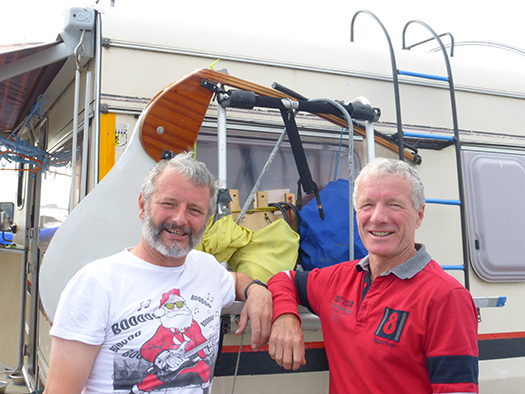
The Affordable Sailing Team – Norman Lee (right) with his brother Ken beside their campervan at last year's GP 14 Worlds at East Down YC on Strangford Lough. Photo: W M Nixon
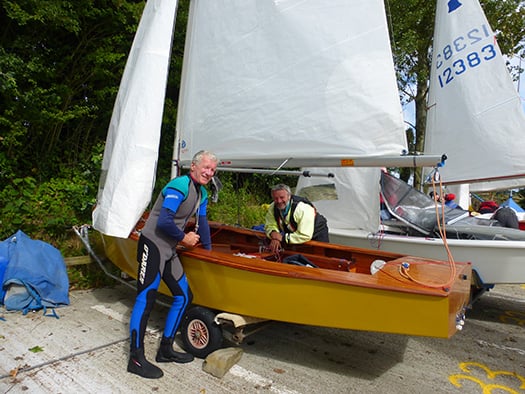
With their own very high can-do standards of boat maintenance, Norman and Ken Lee can keep their GP 14 in the competitive frame. Photo: W M Nixon
That said, the need to own one's own boat and tune and tinker with her to your heart's content is what sailing is all about for many of us, and Norman Lee is a classic case in point for this approach. He claims that his sailing costs him just €600 per year, though that of course is after he has paid for his well-tuned GP14, and he has long since written off the cost of the vintage camper-van which is home to the Lee Equipe when they hit the campaign trail.
Nevertheless the entire setup has to be outstandingly good value, and doing it in such economical style is part of the fun of it all. So when someone with Norman Lee's approach to sailing is prepared to get up at the big ISA public meeting in Dun Laoghaire and congratulate the team who have been working on the reforms which he and Bryan Armstrong set in train, then that is approval of a high order.
And as for just who or what is the ISA, can we maybe agree that ideally we all are the ISA, every last one of us who goes sailing or is even just interested in the sport, and it's up to us to keep it in line and encourage it to identify with and serve the ordinary sailor every bit as much as the high-flyer.
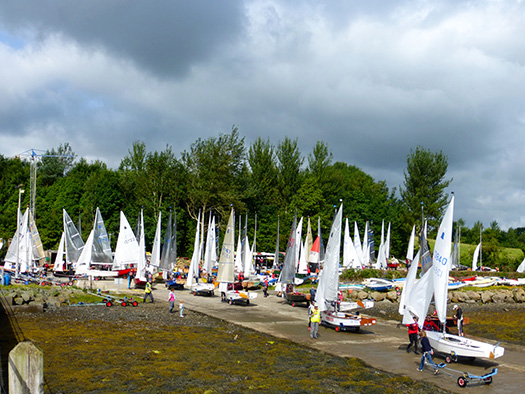
Private pleasure.....the 2014 GP 14 Worlds at East Down YC is about as high as many Irish sailors would expect or want to aim, and many are content with much lower-key regular club sailing. Photo: W M Nixon
Irish Sailing Becomes Third Best Funded Olympic Sport
#sailing – Irish Sailing is going to benefit from just under €1m in government funding in 2015, similar to 2014, but where sailing has made big gains is in the High Performance area. €250,000 for equipment for Rio, and €70,000 for Rio preparation were among the bonuses announced by the Minister today.
Sailing was in the top 10 of Irish sports in general funding, third in the High Performance funding, second in the Rio preparation funding and first in the HP equipment funding.
Total funds to sailing in 2015 from government sources is scheduled to be €1,289,900
By way of contrast, UK amounts are reported to be €33m over the four year Olympiad, while US has about €14m in the same time and Canada will benefit from about €700,000 in 2015.
However, it should be noted that Ireland is only supporting five of the 10 Olympic sailing disciplines, while UK and USA have full teams. And with a smaller pool, it could be argued that the Irish sailors are close to being among the best funded in the world right now. But such a suggestion would be 'completely misleading' as the Irish Sailing's High Performance manager James O'Callaghan points out; 'the programme funds cover 103 sailors involved from Optimist all the way up to the Olympics, not just the Olympic team itself'. 'At each stage of the pathway we have squads and coaches in place to help the sailors progress'.
O'Callaghan continues: 'We are very grateful for the ISC support but we still require additional sources of revenue to ensure our sailors have the best chance of success'.
Amount per discipline per year
UK €825,000 (10 disciplines)
US €350,000 (10 disciplines)
Ireland €257,800 (5 disciplines)
Canada €140,000 (5 disciplines)
There was huge success for Irish Sailing when Minister of State for Sport, Michael Ring T.D., today announced an investment package of €19.6m from the Irish Sports Council into the National Governing Bodies of Sport in Ireland.
The good news for sailing follows a similar announcement by the ISA this week that it intends to raise a further €2.75m itself to further fund the Irish Olympic sailing team.
Overall, The government is spending almost €1million more on sport than the equivalent figure for 2014. This will allow the Council invest in crucial projects for Rio 2016, exciting participation initiatives with a variety of sports and support the participation of Team Ireland at the Special Olympic Summer Games in LA in July.
The investment includes an allocation of €10.85 million to 59 National Governing Bodies (NGBs) to support their core work of administration and participation programmes. This includes increases to support specific initiatives in the IABA, the Confederation of Irish Golf and Hockey Ireland. The Council will allocate €600,000 to support the Women in Sport programme of 23 NGBs with additional support for the highly successful programmes of Swim Ireland and Badminton Ireland.
€8.16m will be invested in 22 Performance Plans which will support Ireland participation at the 2016 Rio Olympic and Paralympic Games. The high performance NGBs also benefit from the direct service provision at the Institute of Sport, the development of high performance facilities at the National Sports Campus, the 2015 International Carding Scheme and the special sports equipment grants; a comprehensive and integrated package of support for Ireland's top performers.
Speaking at today's announcement Minister Ring commented: "I am delighted to be here today to announce a very significant package of sports investment by the Irish Sports Council. Today's investment is a substantial commitment from the Irish Government to the National Governing Bodies of Sport in Ireland. The importance of sport cannot be understated. Sport has the unique ability to activate local communities through participation and volunteerism whilst uniting a nation to support our athletes on the world stage".
Today's investment is designed to support NGBs develop sustainable and effective structures that facilitate increased numbers of both participants and volunteers. The success of the sustained investment has seen considerable growth in membership across the NGB sector which includes 53,000 in Athletics Ireland, 23,000 in Cycling Ireland and 57,000 in Badminton Ireland.
Speaking at the announcement, Kieran Mulvey, Chairman of the Irish Sports Council said:
"The Council place National Governing Bodies at the centre of our work and are the strategic heart of Irish sport. This is a major input of resources into their operations and ongoing development and we have confidence that there will be a significant return on that investment. I want to acknowledge and recognise the on-going support given to us by Minister Ring and his Department which allows us to continue our mission of increasing participation and enhancing high performance."
2015 is the 10th Anniversary of the Irish Sports Council's Women in Sport programme. The programme, which aims to raise the overall physical activity levels among women, has been a key driver in closing the gender gap as women's participation has grown from 39% (2011) to 42.7% (2013). Today's investment will continue to support Women in Sport programmes including 'The Swim for a Mile' initiative from Swim Ireland which aims to deliver 10,000 participants and Rowing Ireland's, 'Get Going, Get Rowing' programme which aims to get an additional 5,000 women participating in 2015.
Ireland will be proudly represented at many sporting events on the international stage. 2015 will be the crucial qualifying year for many sports for Rio 2016 and there will be vital championships events in athletics, swimming, boxing, hockey, cricket and cycling amongst others. The first European Games will take place in Baku in June and it will be could prove to be a pivotal event for the Olympic sports in Ireland. The Council is delighted to support Team Ireland at the Special Olympics World Game in Los Angeles.
John Treacy, CEO Irish Sports Council said:
"As the 2016 Rio Olympic and Paralympic Games come into view, it is imperative we maintain investment so that we continue to build on the excellent performances of recent years in high performance sport. The resources made available in late 2014 by Minister Ring are invaluable for the sports and have been invested in vital equipment, camps and the all-important competition schedules".
Today's investment in High Performance will continue to build on the sustained success of high performance sport in Ireland. The Institute of Sport delivers sports services directly to the Olympic and Paralympic sports and, with athletes accessing services on site, is advanced in the creation of a new support system for high performance sport. The capacity at the Institute will be enhanced with the completion of the bespoke facility which is currently being constructed by the NSCDA on site and which in due for autumn 2015.
High Performance Sport: 2013 (€) - 2014 (€) - *2015 (€) - Rio
2013-2015
Olympic Council of Ireland: 396,776 - 378,987 - 450,382 - 1,226,145
Paralympics Ireland: 310,000 - 310,000 - 513,154 - 1,133,154
Athletics Ireland: 800,000 - 800,000 - 880,000 - 2,480,000
Badminton Ireland: 95,000 - 95,000 - 130,000 - 320,000
Irish Amatuer Boxing Association: 829,000 - 839,300 - 925,000 - 2,593,300
Canoeing Ireland: 50,000 - 65,000 - 65,000 - 180,000
Irish Clay Pigeon Shooting Association: 4,350 - 32,500 - 55,000 - 91,850
Cricket Ireland: 109,504 - 100,000 - 120,000 - 329,504
Cycling Ireland: 265,000 - 303,000 - 350,000 - 918,000
Golf (GUI and ILGU): 375,000 - 375,000 - 390,000 - 1,140,000
Gymnastics Ireland: 47,500 - 60,000 - 107,500
Irish Hockey Association: 400,000 - 420,000 - 450,000 - 1,270,000
Horse Sport Ireland: 525,000 - 510,000 - 550,000 - 1,585,000
Irish Judo Association: 30,000 - 40,000 - 50,000 - 120,000
Paralympic Sports: 613,000 - 610,000 - 665,000 - 1,888,000
Pentathlon Ireland: 190,000 - 170,000 - 180,000 - 540,000
Rowing Ireland: 380,000 - 380,000 - 410,000 - 1,170,000
Irish Rugby Football Union: 275,000 - 275,000 - 275,000 - 825,000
Irish Sailing Association: 643,000 - 632,000 - 635,000 - 1,910,000
Swim Ireland: 524,000 - 530,500 - 560,000 - 1,614,500
Tennis Ireland: 160,000 - 160,000 - 175,000 - 495,000
Triathlon Ireland: 260,000 - 260,000 - 275,000 - 795,000
Total: 7,234,630 - 7,333,787 - 8,163,536 - 22,731,953
The details of the €1.6 million investment in the 2015 International Carding Scheme will be announced at a later date. The transition of the Scheme to athletics, sailing swimming has proven to be successful and four more sports (rowing, triathlon, cycling and badminton) are currently in the transition phase.
General Investment
1. The Irish Sports Council received an Oireachtas Grant of €42.5m in 2015. As announced in Budget 2015, this is the same budget as in 2014.
2. In December 2014, a special allocation of current funds to support qualification, preparation and participation at the 2016 Rio Olympic and Paralympic Games was provided to 18 sporting bodies. This money was provided in 2014 for expenditure on 2015 plans; it is recorded in these documents under the 2015 headings.
3. In November 2014, a special allocation of capital funds for sports equipment was provided to 15 NGBs. While the scheme was not targeted at high performance many NGBs used the funds to support their Performance Plans for 2015. For example, Sailing and Rowing were able to purchase boats and other equipment to support the preparation and participation at the Rio Games.
Core Investment
4. Special Olympics Ireland has received additional investment to support participation and preparation for the World Summer Games 2015. This follows the special allocation of funds in 2014 for the European Games. In total, an additional €250,000 has been allocated to support Special Olympic participation and preparation ay major games over a two year period.
5. Additional investment has been provided to the Irish Amateur Boxing Association, in both core and high performance, to strengthen the capacity of organisation with new appointments.
6. The Confederation of Golf in Ireland has received additional investment to support the increased responsibilities of the organisation and continue the development of Golf in Ireland.
7. In late 2014 Cycling Ireland received an investment of €50,000 to support the capacity of the organisation to support mass participation events. This is recorded in their core budget of 2014.
8. Also in 2014 Table Tennis Ireland received €15,000 to support a schools initiative and this is recorded under the 2014 core budget.
9. Hockey Ireland and the Irish Sailing Association have received additional seed investment to support the development fund on raising capacity on a pilot basis.
Women in Sport Investment
10. The Women in Sport programme for 2015 will total €600,000.
11. Substantial increases have been provided to Badminton Ireland and Swim Ireland to support an expansion of their successful programmes from 2014 including 'Swim a Mile', "Women on Court", "Women @ Heart" and "Girls on Court".
High Performance Investment
12. The Olympic Council of Ireland is entering into one of the most important and busiest years in its history. It has received additional investment to support its wide range of activities including the preparation and participation for the Rio 2016 Games, Youth Olympics and 1st European Olympics in Baku.
13. Paralympics Ireland has received significant additional investment to support the holding of training camps in 2015. The investment will allow Paralympics Ireland replicate the preparation system used in advance of London 2012 which proved to be so successful.
14. Increases in High Performance grants have been allocated to Athletics Ireland, Cycling Ireland and Horse Sport Ireland to continue the successful performance programmes in the lead up to Rio.
15. The Sports Equipment grants allowed Sailing and Rowing purchase boats and essential equipment for the Rio 2016 campaign.
16. Gymnastics Ireland and the Irish Clay Pigeon Shooting Association received High Performance Investment in 2014 and 2015. This was on the basis of an improved level of planning by the NGB and of performances by the athletes.
#sailing – The Irish Sailing Association (ISA) has issued a statement outlining how monies raised in its new Olympic initiative called 'The Irish Sailing Foundation' will be spent.
News of the new initiative that aims to raise €2.75m per year – nearly three times the turnover of the association – appeared in a recruitment advertisement for a new 'ISF' CEO in last Friday's Irish Times and appeared again in weekend newspapers.
The advertisment said it expects the ISF to build 'philanthropic fund raised income to €2.75 million annually in support of the high performance mission and programmes'.
The text of the advertisement also appeared briefly on the ISA website this week but has since been replaced with the updated statement (see below).
According to an ISA insider, there is 'concern' at board level that the initiative appeared to be 'at odds' with its recently launched strategic plan that intends to 'redress the perceived imbalance' between the support structures for those competing in the non-Olympic area and those involved with the High Performance area –essentially the Olympic area.
Today's statement points out any funds raised will also 'provide a contribution towards the development of a National Coaching programme which will be accessible to sailors of all interests and levels of ability'.
The ISA statement refers to the initiative as a 'pilot scheme' with the financial support of the Irish Sports Council.
The original advert is here and The full ISA statement is below:
The ISA is pleased to announce an innovative funding initiative to support Irish Sailing. With the financial support of the Irish Sports Council, a pilot scheme, to be called "The Irish Sailing Foundation" has been established to raise finance from sources other than those which traditionally provide sponsorship to sailing on a national and regional level. The funds are intended to be applied to the continued support of Elite Youth and Olympic development together with providing a contribution towards the development of a National Coaching programme which will be accessible to sailors of all interests and levels of ability.
The funding for the initiative will come from the resources of the Olympic Steering Group which manages the High Performance activities of the ISA.
The recruitment process to identify an experienced professional fund raiser to manage the project has commenced.
David Lovegrove, President of the ISA, in welcoming the initiative, said it was important that sailing explored new ways of funding to position itself with adequate finance to make longer term investment commitments to the development of the sport.



























